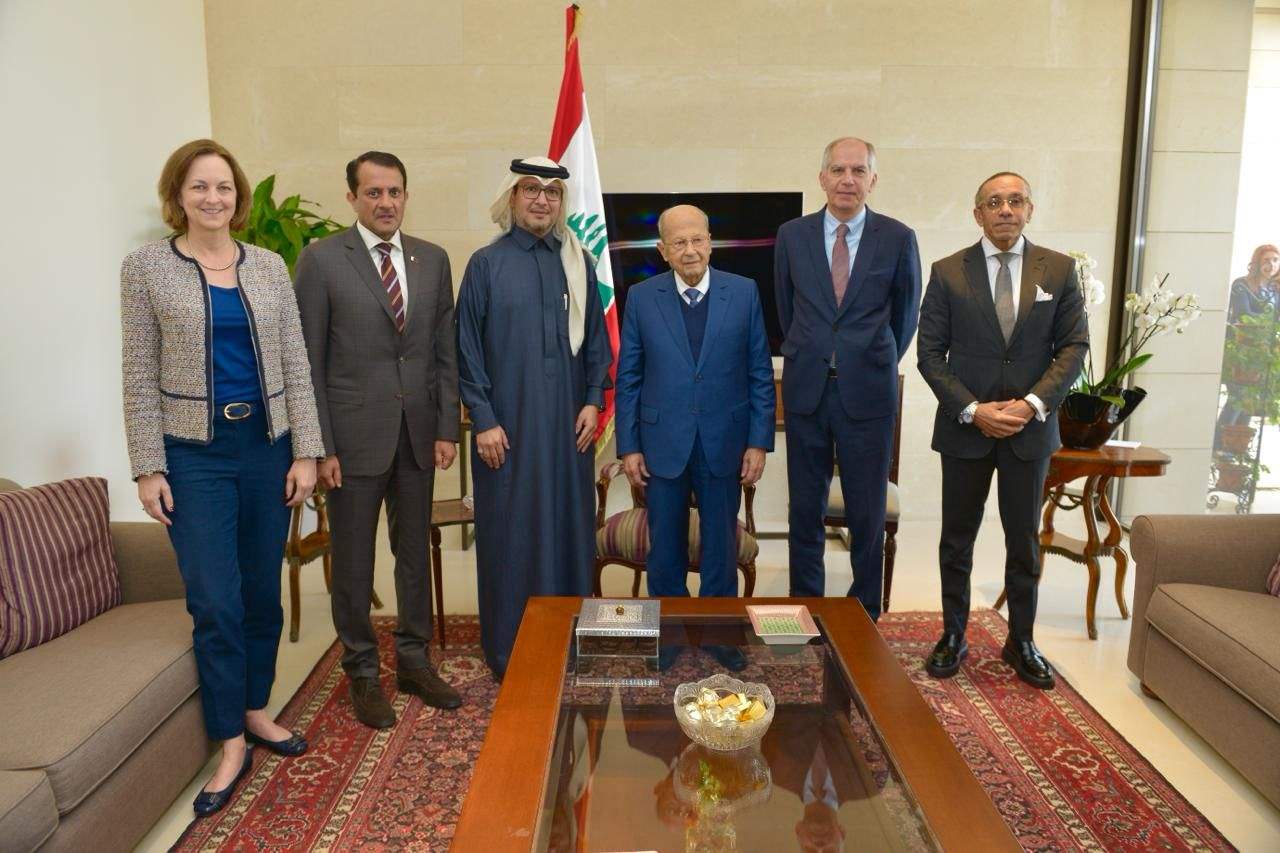As of March 12, Israel killed at least 317 people in Lebanon since the beginning of the cross-border attacks.
Qatar’s ambassador to Lebanon Sheikh Saud bin Abdulrahman Al-Thani attended a meeting with the Quintet Committee and former president Michel Aoun on Tuesday in Beirut amid the country’s political stalemate, Lebanese media reported.
The group — Qatar, Saudi Arabia, Egypt, the United States, and France — separately met Lebanon’s parliament speaker Nabih Berri and Maronite Patriarch, Cardinal Mar Bechara Boutros Al Rahi on Monday.
Qatar’s foreign ministry statements on the meetings said the five-member group’s latest meetings came “as part of joint efforts regarding the Lebanese file.”
The recent meetings also come weeks after another took place on March 1 at the level of ambassadors from the Quintet Committee with caretaker Prime Minister Najib Mikati.
The previous discussions centred on “overcoming the obstacles facing the process of electing” a Lebanese president.
The committee was formed last year under an initiative led by French Presidential Envoy for Lebanon Jean-Yves Le Drian to break Beirut’s prolonged political deadlock. The group regularly met in hopes of filling the Lebanese presidency seat after former president Aoun left office in October 2022.
The country has since failed to elect a president at least 12 times.
The group held their first meeting in Paris in February last year and met again in Doha on July 17, 2023. The committee in Doha had discussed “concrete options with respect to implementing measures against those who are blocking progress” in the election of a president.
The failure to elect a president is due to a deep political divide that widened after the 1975 Civil War. At the time, various Lebanese sides engaged in a bloody civil war that lasted for 15 years, ending with the help of the 1989 Taif Agreement, negotiated in Saudi Arabia at the time.
There have been several names on the table among Lebanese politicians, including Army Commander General Joseph Aoun, and Suleiman Frangieh, who is Hezbollah’s preferred candidate.
Qatar has repeatedly rejected claims over having a preferred candidate, stressing the president must be elected by the people.
Notably, the Gulf state played a strategic role in bridging gaps between the Lebanese sides in 2008. At the time, Qatar held talks that resulted in an agreement between the Lebanese government and Hezbollah following an 18-month political crisis.
Electing a president is seen as a crucial step in resolving Lebanon’s economic crisis, the worst since the 1975 Lebanese civil war. The 2020 Beirut Port Explosion coupled with the COVID-19 outbreak contributed to the country’s worst economic downfall.
The Lebanese pound reached a record-low value in 2023, losing about 97 percent of its value to the U.S. dollar.
Meanwhile, southern Lebanon has been witnessing daily cross-border attacks between Hezbollah and Israel since the beginning of the genocidal war in Gaza.
Israel’s attacks went beyond the south and deeper into Lebanon in recent weeks, including the Beqaa Valley, as it vows to declare an all-out war in the country. As of March 12, Israel killed at least 317 people in Lebanon, according to the local health ministry’s latest updates.
Tensions soared after Israel killed senior Hamas leader Saleh Al-Arouri in Beirut on January 2, marking the first such attack on the Lebanese capital since the war.
In January, Israeli Prime Minister Benjamin Netanyahu threatened to level Lebanon like Gaza.
“Hezbollah made a serious mistake about us in 2006 and is doing so again now. It thinks that we are weak as a spiderweb, and now sees what kind of spider we are,” Netanyahu said, referring to the deadly war between Israel and Lebanon.
In 2006, Israel waged a 34-day war on Lebanon, killing 1,200 mostly Lebanese civilians. The war ended with Hezbollah forcing Israeli soldiers out after weeks of intense attacks.







